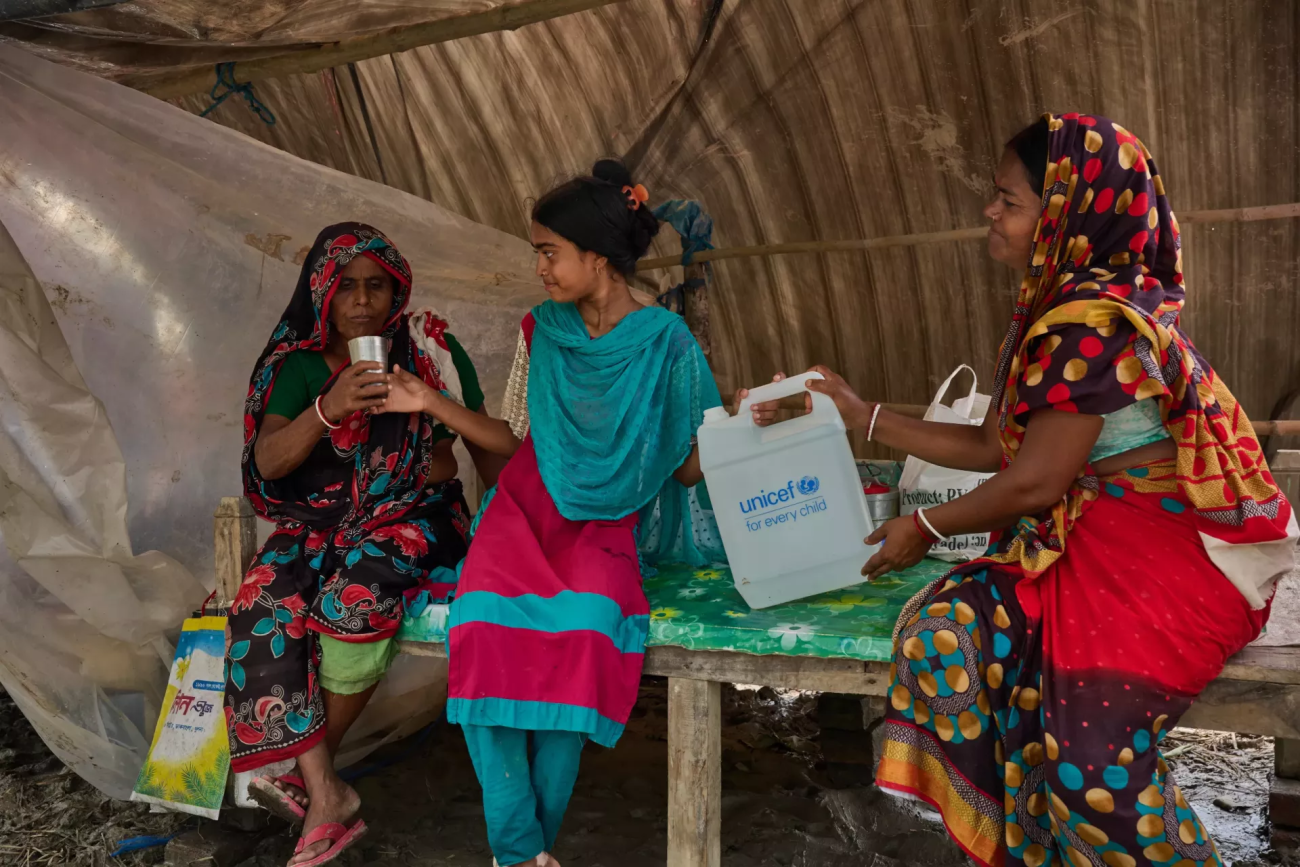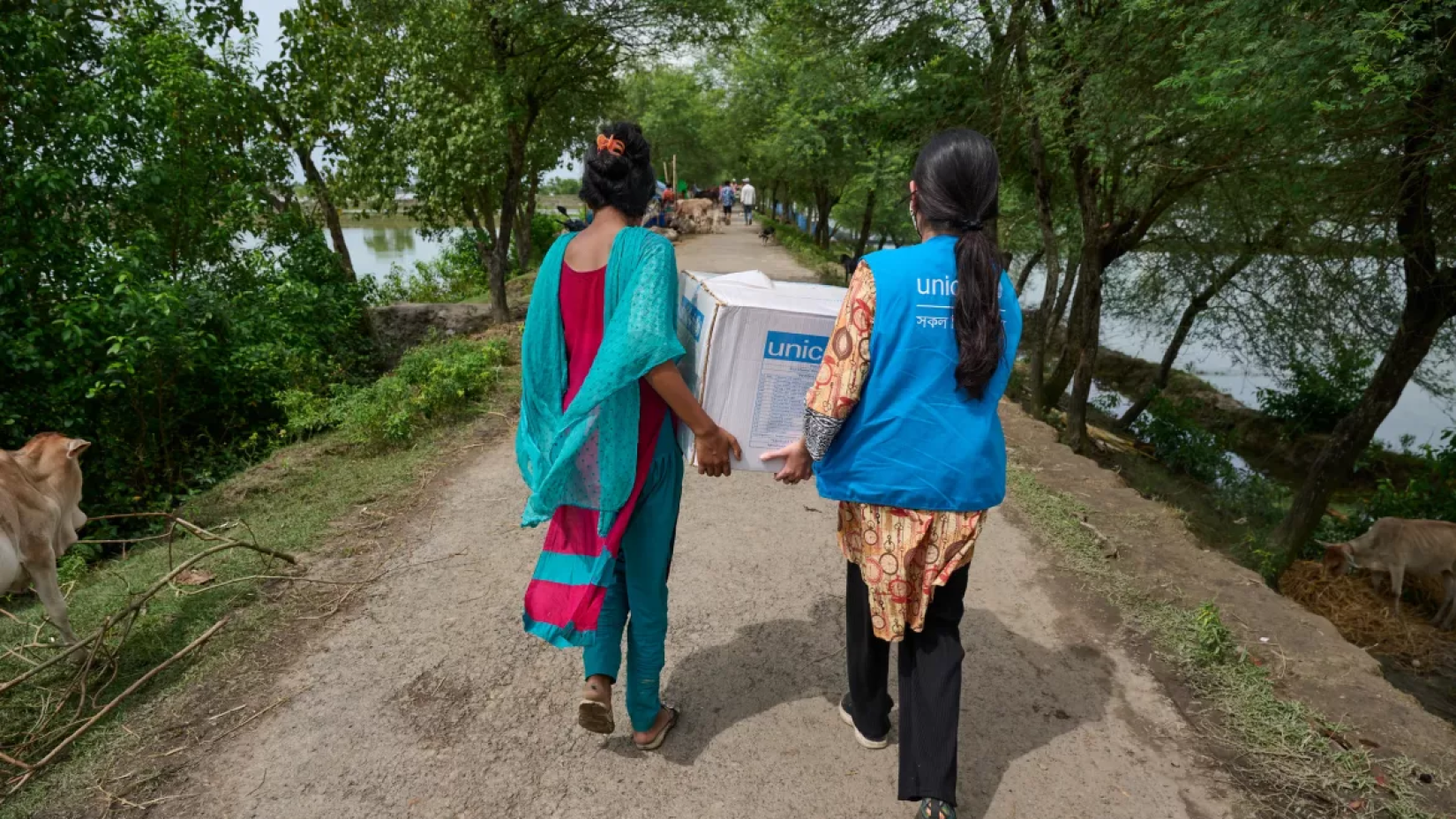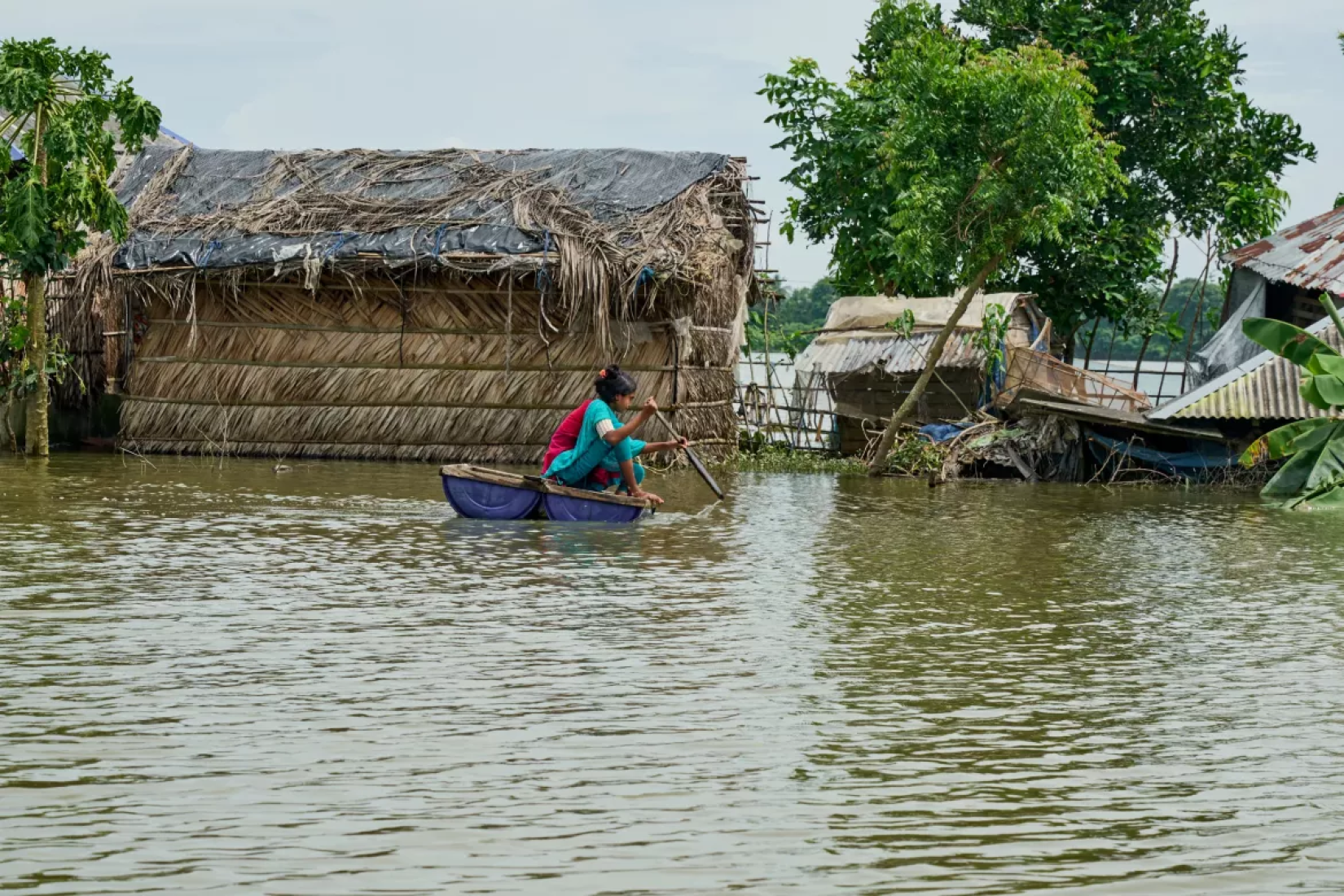Titli's hope for a brighter future in the wake of floods

Flood-affected families in Khulna’s Deluti Union navigate challenges and recover from and prevent waterborne illnesses with lifesaving clean water and hygiene k
25 September 2024
‘Getting safe drinking water on time helped my father recover from diarrhoea,” says 13-year-old Titli. “I was so worried because he would not take his medicines with dirty water, knowing it could worsen his health.”
Titli, a student of class 8 at Darunmollik High School, lives in Harinkhola village of Deluti Union in Paikgachha, Khulna, with her parents.
In the low-lying plains of Deluti Union, six rivers surround the region, shaping its landscape and the fate of its people. Over the years, climate change has intensified the region's vulnerability, with the area getting flooded regularly due to high tides. This year, heavy monsoon rains inundated thirteen out of seventeen villages of Deluti Union including Harinkhola, turning them into small islands and making everyday life a struggle for survival.
Life on a broken embankment
As the flood water continued to rise, Titli and her parents had to make the difficult decision to leave their home for somewhere safe and dry. Titli managed to take only a few clothes, leaving behind most of her belongings, including her schoolbooks, “I put them in a plastic bag and placed them on a high shelf,” Titli recalls.
It has been almost a week that Titli, her parents, and many others from Harinkhola and the other twelve villages have been living in makeshift tents on the embankment. The floods have left nearly 25,000 from the thirteen villages in the union stranded, relying on dry food to survive.
Titli’s father, Mriganka, who owns a small pharmacy, dreams of her becoming a doctor. However, the floods have disrupted her education, and her father’s health has become a major concern. He injured his leg while setting up their temporary shelter and got diarrhoea the next day. Despite his knowledge of medicines, the lack of food and safe drinking water had made it difficult for him to take his medication properly.
“I knew the dangers of drinking unsafe water,” he explains. “We carried as much safe water as we could from our house, but when it ran out, we had no choice but to wait for help. We could not drink the contaminated water, or we all would have fallen sick. Thankfully, we received safe drinking water the very same day.”
Struggles and hopes
UNICEF has been on the ground, providing crucial support to families like Titli's. "For the past three days, UNICEF has been supplying safe drinking water to the people of Deluti Union, who have been displaced by the floods. We supplied 5,560 liters of water in the first two days when the flood hit,” explains Md. Qausar Hossain, Chief Field Officer, Khulna, UNICEF Bangladesh. “However, it will take at least two more weeks for the water to recede enough for people to return to their homes, provided there is no heavy rainfall in the meantime. Until then, we will need to continue supplying water to meet the demand.”
Along with safe drinking water, UNICEF is also distributing hygiene kits to help families maintain cleanliness and prevent the spread of waterborne diseases. Each kit contains a water container, utensils, sandals for children and adults, soaps and other personal hygiene products. “The sandals helped me a lot,” says Titli. “I don’t have to walk barefoot on these muddy streets anymore. My father has always emphasized the importance of cleanliness, and the soap helps us maintain good hygiene in this situation.” To date, UNICEF has provided hygiene kits to 152 families in Deluti Union.

Holding on to dreams
However, life on the embankment is still far from easy. The psychological toll of this disaster is also heavy on Titli and her family. Titli worries constantly about her family’s health and the threat of snake bites after her uncle was bitten by a snake while living on the embankment. “I feel very scared at night. It is very difficult to fall asleep inside the tents with everything so exposed,” says Titli in a hushed voice.
Her father, in turn, is concerned about Titli missing her classes. Her school is a 40-minute walk from their home, but with the roads submerged in water, it is impossible for her to attend classes. “My father wants me to become a doctor, and it is my dream too,” Titli shares. “When I become a doctor, I want to help people experiencing hardships similar to what we are going through.”
Titli’s family’s small plot of land, where they grew vegetables, is now ruined. “We never had to buy vegetables from the market. Now, with our shop destroyed and everything being so uncertain, I do not know how I will manage to buy food for my family. This is the worst flood that I have experienced in my life,” says Mriganka, who was born and brought up in Harinkhola.
Although they could manage to bring their cattle with them to the embankment, they had to let them go soon after. “There is no space to keep them here, and we had nothing to feed them,” Titli explains sadly.
Yet, despite the challenges, Titli remains hopeful. She is determined to continue her studies and pursue her dream of becoming a doctor, “We are waiting for the water to go down so that we can return home, and I can go back to school. My dream is still alive, and I will work hard to achieve it,” concludes Titli.












